There can be your advertisement
300x150
Main Trends in Interior Finishing for Apartments in 2022
We create the most stylish and up-to-date spaces
There are solutions that never go out of style: neutral wall color palettes and the use of natural materials in interior design. But in the new year, fresh trends come into our lives, making any space more modern and vibrant.
We've compiled a list of the top trends in apartment finishing to pay attention to.
Lina Savina - Designer
Paint and ColorPaint is one of the most frequently used materials in wall finishing. When choosing trendy shades, you can confidently rely on Pantone's color institute: according to their version, the main color of 2022 will be Very Peri — a blue tone with a red-violet undertone. But don't limit yourself to Pantone's research results: many paint market leaders have shown their own versions.
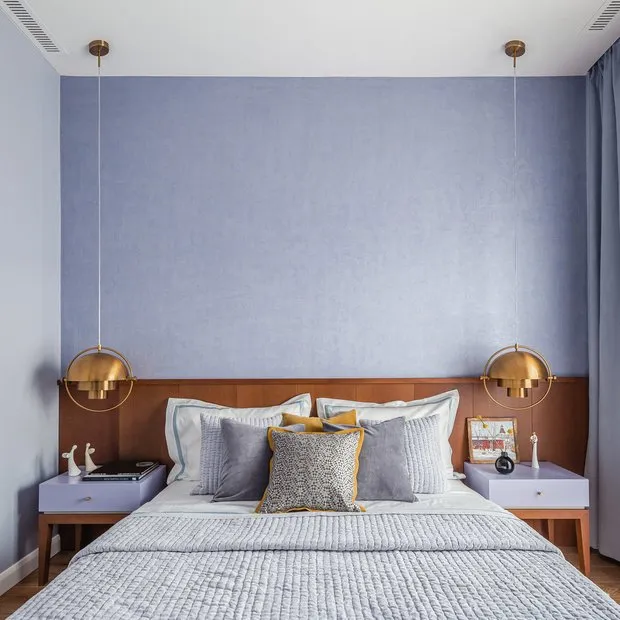 Design: ANDdesign
Design: ANDdesignThe American paint manufacturer Sherwin-Williams has introduced the color Evergreen Fog — a soft, enveloping, and calming gray-green tone that perfectly suits wall finishing for the kitchen, living room, or bedroom.
The paint brand Tikkurila hasn't stayed out of the spotlight either and showcased its trendy home color. It is L478 Kestrel, or "Kestrel" — a warm brown with a cool red undertone that fills the room with an atmosphere of warmth and comfort.
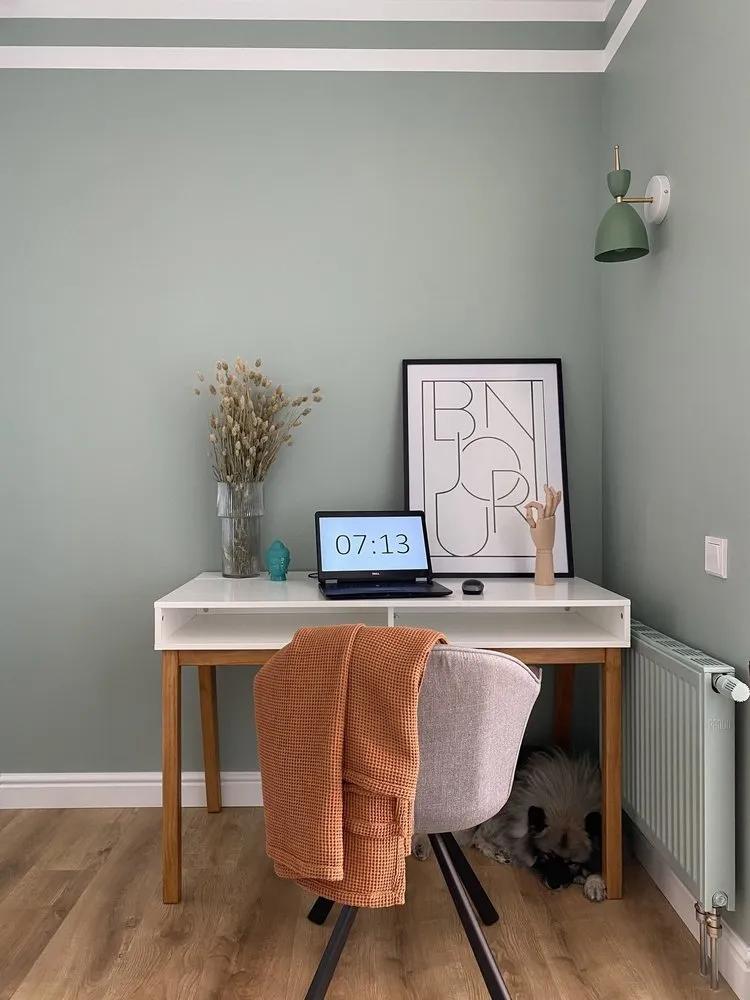 Design: Ekaterina UlanovaMicrocement
Design: Ekaterina UlanovaMicrocementThis material has been on the market for a long time, but now it is becoming increasingly popular in finishing residential and public interiors.
Microcement has many advantages:
- resistant to wear, impacts, scratches, and chemical exposure;
- has no joints or seams;
- wide range of colors and textures;
- can be applied to any surface: tiles, marble, stone, terrazzo, gypsum board, concrete, cement, and plaster;
- completely sealed surface;
- non-slip surface;
- coating thickness from just 2 mm to 3 mm;
- very easy to clean;
- no mold or bacteria growth on the surface;
- can be used for walls, floors, and ceilings.
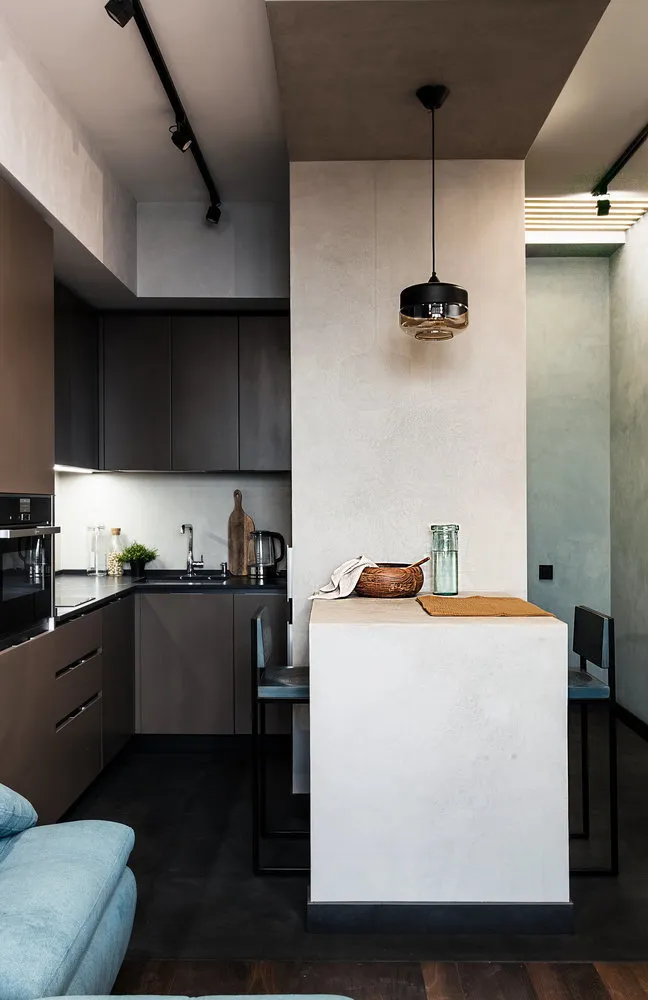 Design: Ksenia KharkovaRelief in Space
Design: Ksenia KharkovaRelief in SpacePreviously, a bold accent was enough with geometric wall painting. In 2022, the usual approach becomes more complex and gains new meaning: geometry becomes relief, and the surface becomes something to not only admire but also touch.
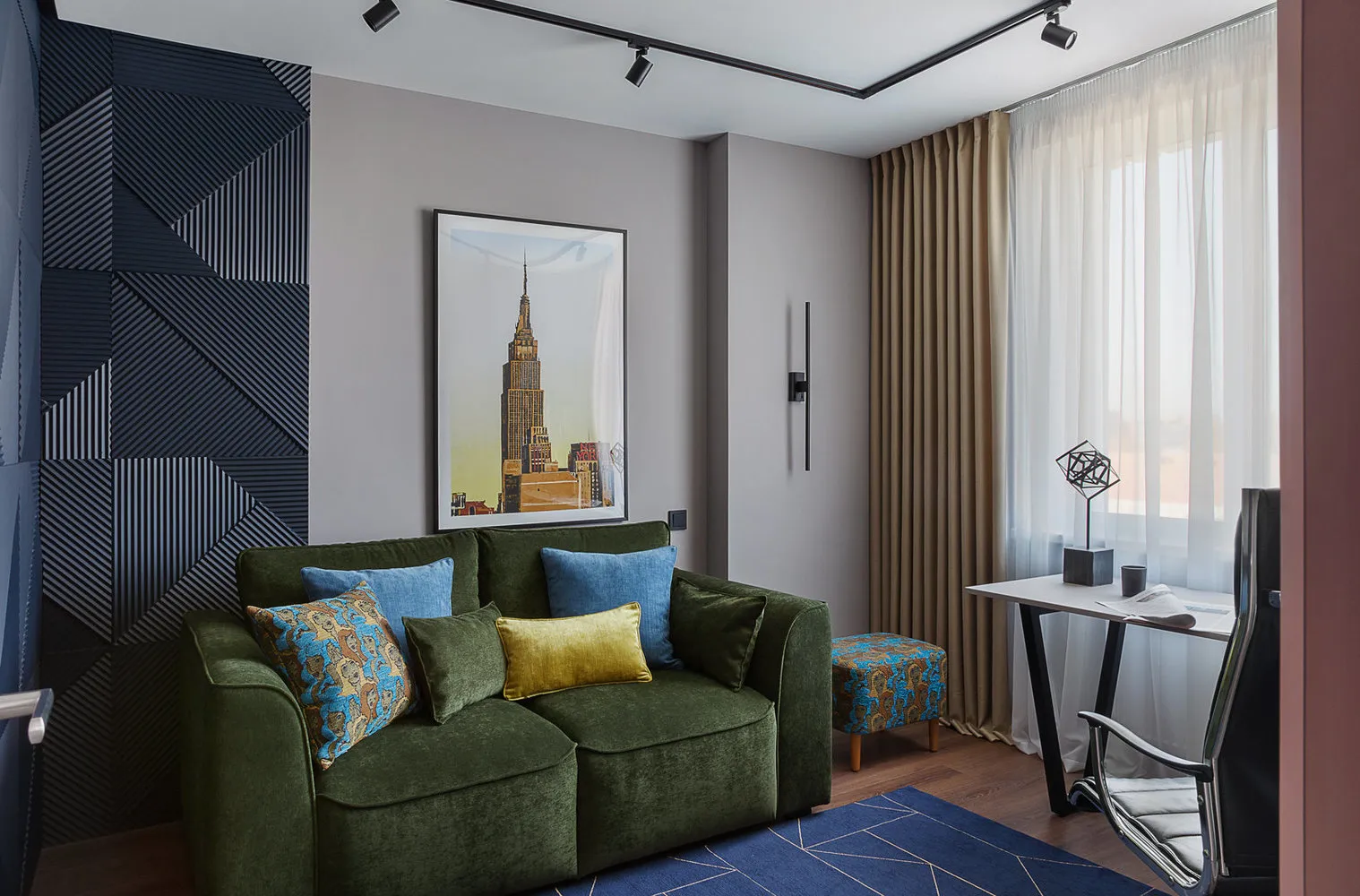 Design: Anastasia Bezmaternykh
Design: Anastasia BezmaternykhEven though you can still add relief to a space using wooden strips, the peak of popularity will be relief finishing in wall color: this can be a concrete panel or tiles of more complex or simple shapes.
ShapesCurved, amorphous, soft lines replace rigid, flat, straight-line interior items, and this is reflected in furniture and décor as well as wall layouts and volumes.
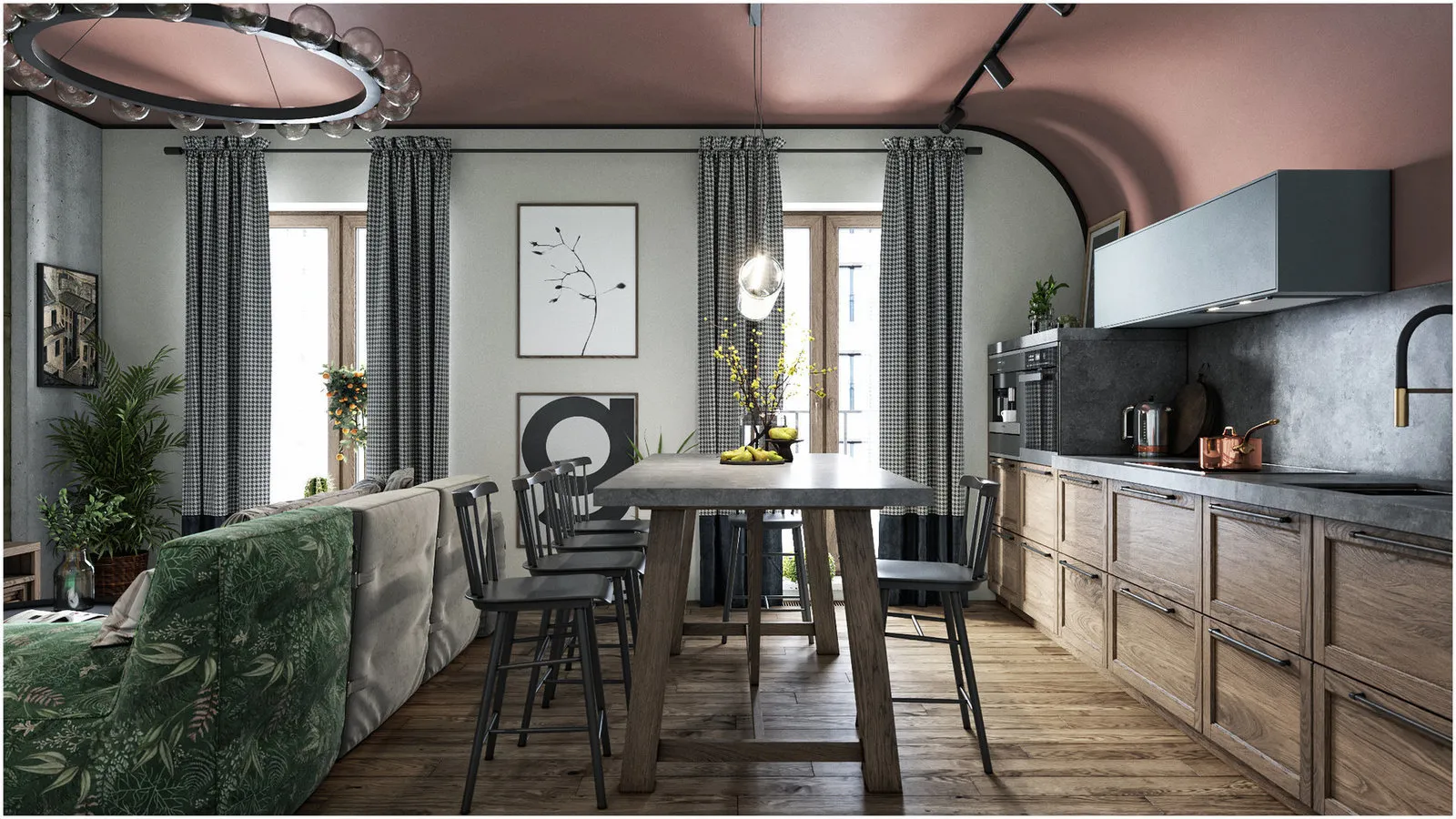 Design: Totaste Studio
Design: Totaste StudioThanks to soft forms, interiors become more airy and light: soft lines can be used in the patterns of suspended ceilings or wall ornaments. When talking about furniture, flowing shapes can be added with round dining tables, chairs with rounded backs, and round lamps.
Large PrintsLarge-format prints are relevant not only for wallpapers and furniture but also for tiles. You can decorate an unusual kitchen apron with a large naturalistic pattern. A large-scale design looks great in bathroom finishing: here, you can highlight the shower area.
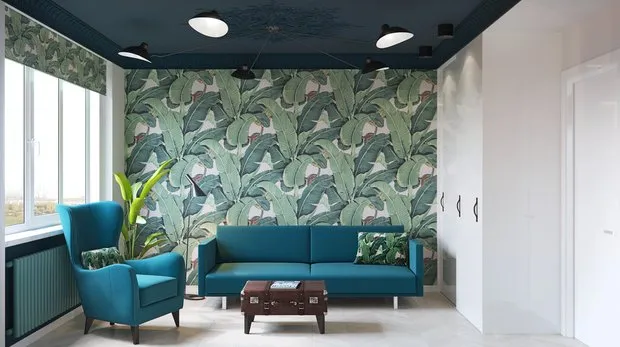 Design: Nikita Zub
Design: Nikita ZubDon't forget about stunning wallpapers with large-format decoration: they look great in large spaces. But be cautious: such an approach allows for a creative accent wall, but a large print throughout the apartment can overload the space and make it overly busy.
OmbreAnother unconventional color solution that will top the 2022 trend list is ombre. Even the most neutral tones will look much more attractive if painted in gradient or ombre technique.
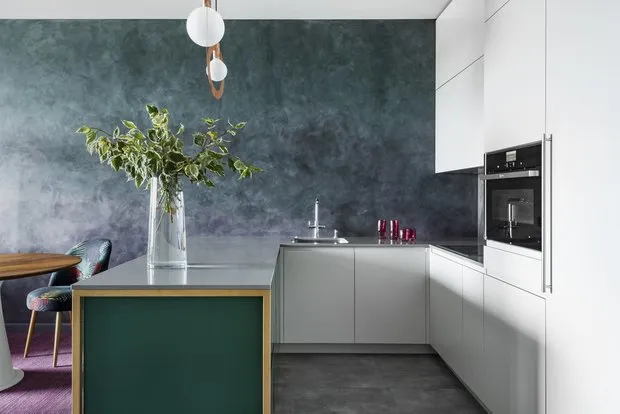 Design: Design Studio 'GraDiz'
Design: Design Studio 'GraDiz'This way, you create a depth effect, and this trend is also considered a find for spaces with low ceilings. A small life hack: use soft transitions. Let the deep shade at the bottom of the wall gradually transition to a light shade on the ceiling — the gradient effect and softened color boundary visually expand the room.
Photo on cover: Design project of the design studio 'GraDiz'
More articles:
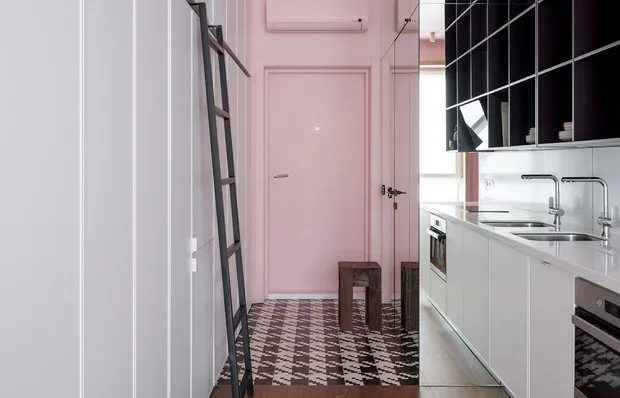 Is It Comfortable Living with a Pass-through Kitchen? How to Maximize a 28 m² Studio Apartment
Is It Comfortable Living with a Pass-through Kitchen? How to Maximize a 28 m² Studio Apartment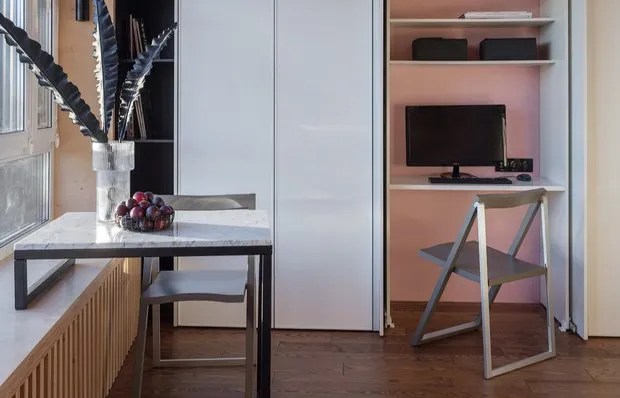 Amazing Solutions in a Mini Studio: Wardrobe-Cabinet, Hidden Closet, and Many More Cool Ideas
Amazing Solutions in a Mini Studio: Wardrobe-Cabinet, Hidden Closet, and Many More Cool Ideas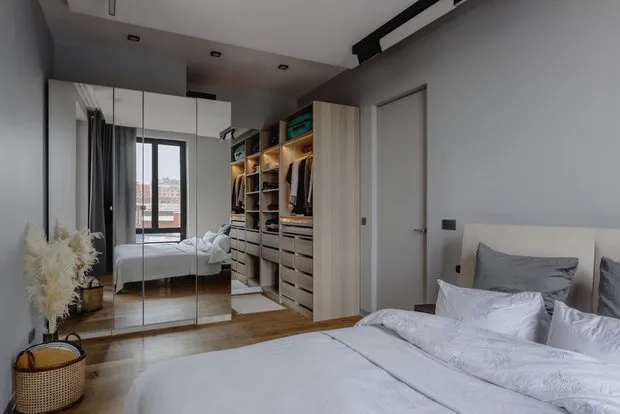 Beautiful IKEA Wardrobe Where Every Detail Is Thought Through
Beautiful IKEA Wardrobe Where Every Detail Is Thought Through Amazing Bathroom Without a Designer — It's Really Possible
Amazing Bathroom Without a Designer — It's Really Possible Stylish Finds from AliExpress Under 300 Rubles
Stylish Finds from AliExpress Under 300 Rubles 8 Budget Ways to Refresh Your Interior Over the Weekend
8 Budget Ways to Refresh Your Interior Over the Weekend 6 Tips for Setting Up a Home Mini-Office
6 Tips for Setting Up a Home Mini-Office Mega Discounts for Black Friday: 10 Finds for Comfort and Beauty of Your Home
Mega Discounts for Black Friday: 10 Finds for Comfort and Beauty of Your Home